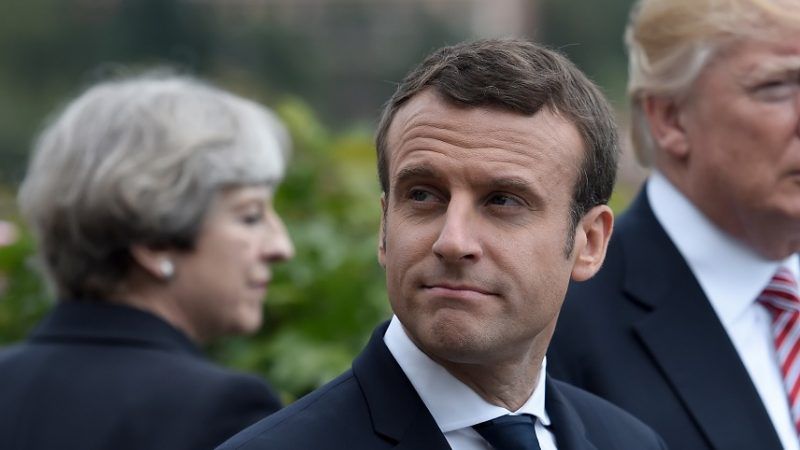British, French Elections Show Battle of Ideas Not Over Yet
Socialism and big government remain popular, particularly among young people.

A lot of people, including yours truly, have been getting election predictions wrong lately, and so it is time to eat some humble pie. In a previous column, I wrote that the French economic malaise was likely going to continue, because "If Macron does become president [of France], he will likely face a Parliament constituted of political parties that owe him zero loyalty. The French Parliament will be elected in June and the center-right Republicans, the National Front of Marine Le Pen, and an assortment of socialists and communists, are likely to be abundantly represented as well."
The future being difficult to predict, my take on the French election proved to be spectacularly wrong (I know now what Bill Kristol must feel like). President Macron's party, La République En Marche, appears to have won 32.3 percent of the vote in the first round of the French parliamentary elections. Alongside its centrist ally MoDem, Macron's group will have between 415 and 455 seats out of 577 in the lower house of Parliament once the second and final round of parliamentary elections is over next Sunday.
Reforming France's sclerotic economy remains, of course, a very difficult task. Once the public sector unions take to the streets, Macron will have to hold his nerve and not succumb to pressure in the way that Jacques Chirac did in 1995. So far, the signs are promising. Macron has appointed a center-right politician, Edouard Philippe, as his prime minister, thereby indicating a break with the socialist policies of the former President Francois Hollande. Macron's snub of the U.S. President Donald Trump and criticism of Russian propaganda during Vladimir Putin's visit of Paris has played well at home and Macron's popularity is sky high. Let's see if it continues once Macron's reform proposals are announced.
While France is on the verge of getting a stable government, across the English Channel, the British government got itself in a lot of trouble. Theresa May had called a snap election last Thursday to shore up her Conservative Party majority in the House of Commons. She lost seats instead. She may yet survive as Prime Minister by striking a quasi-coalition deal with a small Northern Irish Ulster Democratic Party (UDP). That said, the election complicates a number of matters.
First, the election came within a whisker of enabling an unreconstructed socialist, Jeremy Corbyn, to become prime minister. By promising to nationalize parts of the economy, and increase taxes and expenditure, Corbyn was thought unelectable. Thanks to a very poor campaign by the Conservatives, who opted to attack Corbyn's zany foreign policy ideas, rather than his nutty economic proposals, he is now a credible Leader of the Opposition and firmly in charge of Britain's second largest political party, Labour.
Second, the collapse of the Soviet empire notwithstanding, the battle of ideas is far from won. That is particularly true of the young, who remember neither the failures of British socialism in the 1970s nor the Cold War, and who turned out in massive numbers to support the Corynistas. According to one estimate, some two-thirds of 18- to 24-year-olds cast their ballots for Labour. The same poll found that 25- to 34-year-olds preferred the socialists by a margin of 36 percent.
No doubt, Corbyn's promise to forgive student debt played a role in shoring up Labour support among the young, but May did not help herself by moving to the political middle by explicitly distancing herself from Margaret Thatcher's free market policies. Instead of making the elections about the economy, the prime minister engaged in the contest of "who can promise more free goodies to the electorate." That's not a battle that the Tories can win.
Therein rests an important lesson for the United States. If the Democrats manage to replicate Corbyn's success among the young on this side of the Atlantic, the GOP can kiss their Congressional majorities goodbye in 2018. And let's not forget about the presidential contest in 2020. The United States, after all, has its own Jeremy Corby—a certain Vermont senator waiting to utilize the youth vote and bring the promise of socialism to America's shores.


Show Comments (19)